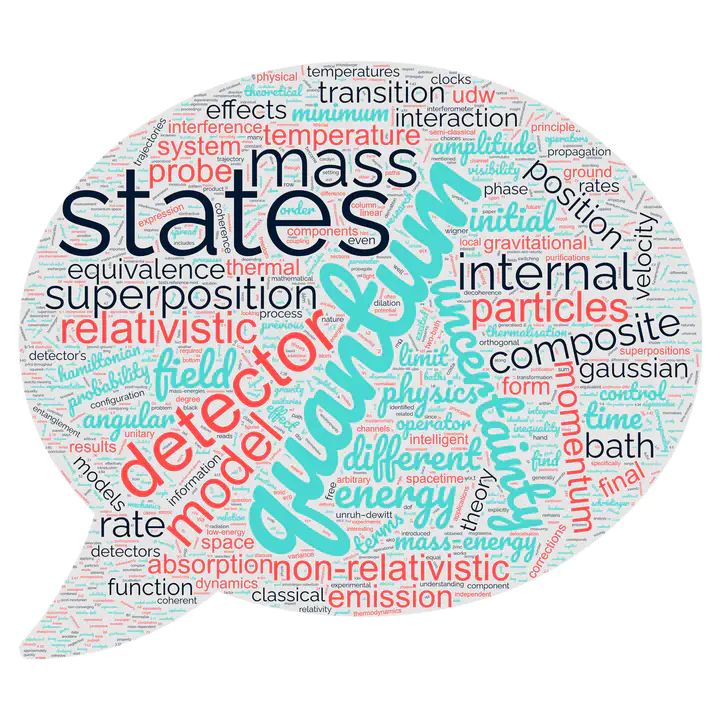
Abstract
Composite quantum particles, such as atoms and molecules, are promising tools for probing quantum systems under gravitational effects. However, greater understanding of mass–energy equivalence in composite particles and their interactions with external environments is required. This thesis addresses this knowledge gap by 1) deriving semi-classical propagating states for such particles, 2) modelling generalised interactions between quantum systems and thermal environments, and 3) describing mass–energy effects in simple atom–light interaction models. Ther results stress that mass–energy equivalence is required to correctly model quantum particles with internal structure, particularly when the interplay between internal, external, and environmental degrees of freedom is crucial.